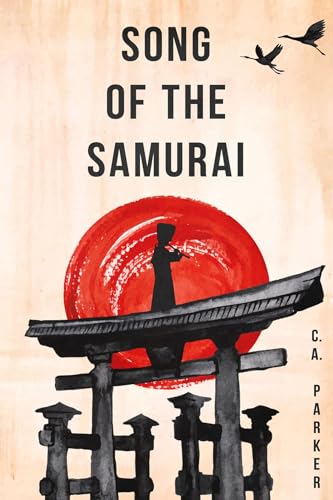Song of the Samurai
In 1745 Japan, Kinko Kurosawa, a Zen Buddhist priest, is banished from his monastery for an impropriety and sets out for a distant monastery that will accept him in exchange for his extraordinary musical skills. A talented player of the shakuhachi, a flute used in meditation, Kurosawa is in great demand and can expect a warm reception for his skills and teaching. But there is more than beauty to be found in his music. And his ego may be getting in the way of being the player and the priest he believes himself to be.
The novel’s prologue invites the reader to think this is an adventure story – perhaps a political thriller or a mystery – but those elements, while present, are only the pretext for a different kind of journey. As Kurosawa – sometimes called by his given name and sometimes by his family name – slowly makes his way to his new home, he encounters musicians, lovers, teachers, fellow monks, spies pretending to be monks, and one hermit preparing for spiritual warfare. All have their lessons to teach to one beginning to listen.
Sometimes the narrative seems bogged down by explanatory asides. But the explanation may be needed for a mostly Western target audience. Once the reader lets go of judgment concerning whether this is a thriller or a mystery or some other standard genre, they will be led along a spiritual path and submerged deeply in the culture of 18th-century Japan and of Buddhist discipline in particular. The other matters, political and social, are also interesting, and mostly resolved, but it is the personal journey at the heart of this novel that will draw the reader in.










